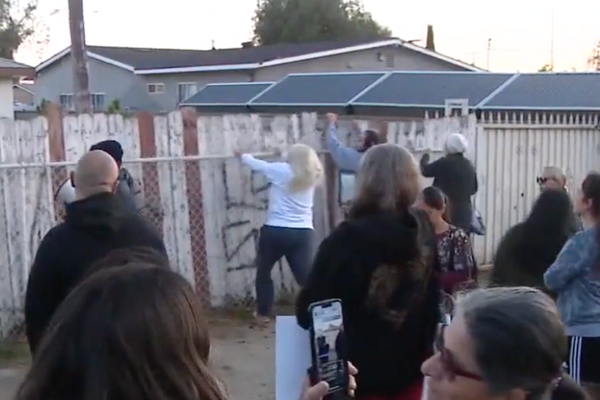
It was France against the US, battling it out for bronze at the World Team Chess Championship. But the heated competition took on an unexpected twist when Mitra Hejazipour and Atousa Pourkashiyan – once teammates in Iran, now grandmasters in exile – were pitted against each other.
“It was strange. There was this sadness, but also a bit of joy,” said Hejazipour. “We were able to leave our country, we were able to successfully join other national teams. But it was sad that we couldn’t represent Iran, our country.”
France emerged the winner, securing bronze at the championship earlier this month. The feat, coming weeks after Hejazipour became the French women’s national chess champion, catapulted the 30-year-old further into the limelight and laid bare the tremendous chess talent that has left Iran in recent years.
Five of the country’s female grandmasters have moved abroad in as many years, several of them after playing internationally without a headscarf. Last year Sara Khadem made headlines after taking part in a 2022 tournament without a headscarf; she now plays for Spain.
Among the first to leave was Dorsa Derakhshani, who was barred from playing for Iran in 2017 after she took part in a tournament in Gibraltar without a head covering.

Two years later Hejazipour followed suit, casting off her hijab as she took on competitors at the Blitz Chess World Championship in Moscow. After the tournament she returned to France, where she had been living and training at the invitation of a chess club in Brest, and began charting out a new life as a grandmaster in exile.
Hejazipour’s decision to play without a headscarf came at a steep price. Although France gave her refuge, she could not play professionally for the country because she was not a French citizen.
She instead found other ways to fill her days, perfecting her French and studying computer science and engineering. But she wondered constantly if she would be able to return to the sport that had dominated her life since she was six. “I had always played chess,” she said. “It had always been my great love.”
In March, after an expedited citizenship process that took three-and-a-half years, she became a French citizen. Months later she was crowned France’s national chess champion. “Nobody was really expecting it,” Hejazipour said with a laugh.
Born in Mashhad, Iran, Hejazipour swiftly rose through the country’s chess ranks, becoming the national women’s champion at the age of 19.

In 2018 she was gripped by the actions of Vida Movahed, who had cast off her headscarf and dangled it on a stick in central Tehran in what was widely seen as a protest over the lack of social and political freedoms in the country.
The act of resistance hit at the discomfort that Hejazipour had long felt in being forced to wear the regime’s compulsory head covering.
Soon after, Hejazipour published a photo of herself in Germany, her hair uncovered, on Instagram. Amid reprisals from the regime, she said she decided to remove the post.
But the spark had been lit. Months later she decided to risk it all, turning up without a hijab at the tournament in Moscow, backing what was then a fledgling movement challenging the regime. “I was glad that I was able to show my support,” she said.
From her new home in France, she watched as the movement gathered momentum this year, with tens of thousands of women in Iran refusing to wear the hijab during the months-long protests over the death of Mahsa Amini in police custody.
“It was historic,” she said. “We’re united, both the people of Iran and those outside, pushing back against the regime. Change and revolution are going to happen, sooner or later.”

In recent months, as the regime responds to the protests with an extraordinary crackdown on dissent, the role of those outside Iran has become even more crucial, she said.
“I think that those of us in the diaspora, when we have the chance to speak of women in Iran, we can’t hesitate,” she said.
“I spent 26 years of my life there, I saw how Iranian women are limited by Islamic rules and the problems and challenges they face in daily life. I can’t be neutral after everything I’ve lived through.”
Her four years abroad, however, served as a reminder that the fight for women’s freedom is a global battle.
“In France, for example, it’s a secular country but there are girls born into religious families that are run by little dictators,” she said. “So it’s really important to speak about these issues.”
As she carves out a hyphenated existence between her new life in France and her hopes for her home country, she said she had no regrets regarding her decision to cast off her headscarf.
“I’m sorry I didn’t do it sooner,” she said. “Even though I can’t return to Iran, my family is far away, and how difficult life was when I couldn’t play chess professionally for years … despite all that, I never doubted my choice. I think it was a good decision.”







